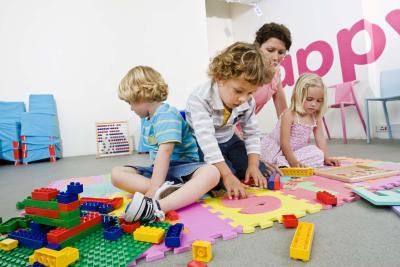Most parents would like to assume that their child sits, ready to learn in school each day, but this is not always the case. Even the most-attentive parents can produce children who, for one reason or another, struggle to behave in school. By understanding the behavioral issues that your child may exhibit in school as well as the proper way for you to respond to reports of school problems, you can play an active role in remediating your child’s behavior and getting him back on the track to academic success.
Common Classroom Behavior Problems
As the U.S. Department of Education reports, an array of behavioral problems presents a challenge to the classroom teacher. Everything from off-task behaviors to physical aggression to taunting of peers can get in the way of classroom learning. While teachers are trained to deal with much of this misbehavior, they can often only do so much to assist pupils.
Behavior Problem Causes
Classroom misbehavior can stem from an assortment of causes. In some cases, children have simply not matured behaviorally or learned the basics of how to behave in a classroom, leading to behavioral struggles. In other cases, a child may simply possess a short fuse. For some children, behaving properly proves even more challenging as they posses a behavioral or emotional disability that prevents them from doing so.
Impact of Classroom Behavior Problems
The way in which your child behaves in the classroom could have a long-term impact on his educational success, reports a University of California study. This study found that children whose records indicated poor behavior in elementary school were more likely to have poor grades come the high school years. Researchers hypothesize that the poor high school academic performance could be due to the fact that these students were removed from their elementary classes for misbehavior more frequently and, as a result, missed out on some foundational learning.
The Right Response
When your child’s teacher reports poor classroom behavior to you, it can be tempting to tell yourself that your child couldn’t possibly have been misbehaving. Your child’s misbehavior in class is not a reflection of you as a parent. Accepting the fact that your child stepped over the line is vital to helping your child fix his behavior.
What You Can Do
By disciplining your child at home for classroom misbehavior, you make it clear that you value school and that the way in which he behaves in the classroom is important to you. The key to changing your child’s classroom behavior is follow-through. If you tell your child that he is going to be grounded if he gets a detention, don’t renege on your threat. Follow through with punishment, regardless of how fervently your child may argue that he wasn’t to blame.





